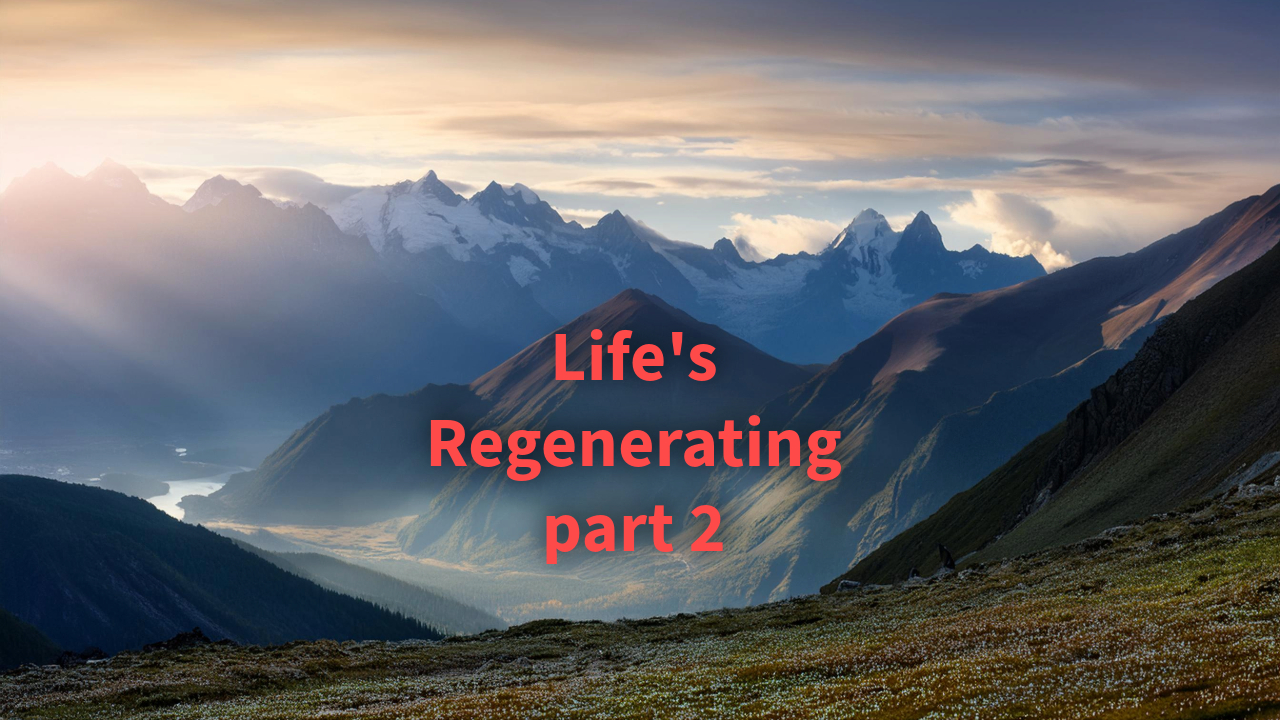LIFE MEETING THE NEED OF MAN’S EVERY CASE
The Need Of The Dying —
Life’s Healing
Verses:
John 4:43-54
43 And after the two days He went forth from there into Galilee,
44 For Jesus Himself testified that a prophet has no honor in his own country.
45 Then when He came into Galilee, the Galileans received Him, having seen all that He did in Jerusalem at the feast, for they also went to the feast.
46 He then came again to Cana of Galilee, where He had made the water wine. And there was a certain royal official, whose son was sick in Capernaum.
47 When he heard that Jesus had come out of Judea into Galilee, he went to Him and asked Him to come down and heal his son, for he was about to die.
48 Jesus therefore said to him, Unless you see signs and wonders, you will by no means believe.
49 The royal official said to Him, Sir, come down before my little child dies.
50 Jesus said to him, Go, your son lives. The man believed the word which Jesus said to him and went his way.
51 And as he was now going down, his slaves met him and said that his child was living.
52 So he asked them the hour in which he got better. They said then to him, Yesterday at the seventh hour the fever left him.
53 Then the father knew that it was in that hour in which Jesus said to him, Your son lives; and he believed, he and his whole house.
54 Again, this second sign Jesus performed when He came out of Judea into Galilee.
Ministry Excerpts:
JESUS COMING BACK TO THE PLACE OF THE WEAK AND FRAGILE PEOPLE
Jesus returned to Cana of Galilee, the place of the weak and fragile people (John 4:43-46). Cana is in Galilee, a despised place (7:41, 52), which signifies the world of a low and mean condition where the weak and fragile people are. The Lord was here once during the first sign to change the death water into life wine. Now He comes back to the same place to do the second sign, which in the principle of life corresponds with the first sign—to change death into life.
THE WEAK AND FRAGILE PEOPLE DYING
This case, the third among the nine, reveals the dying people’s need of healing. This case concerns the son of a royal official who was about to die. Mankind firstly needs regeneration, secondly satisfaction, and thirdly healing. We all need a certain amount of healing. In a sense, we are living; in another sense, we all are dying. When a baby is newly born, his mother would think that he is growing. Actually the baby is dying. Everyone on earth is dying. If you are young, still under thirty years of age, you may not have the sense that you are dying. However, when you reach the age of sixty or seventy, you realize that you are dying. A life span of seventy years may be likened to seventy dollars. Each year that is lived is the equivalent of spending a dollar. Once you have lived sixty years, you have spent sixty dollars. When you reach the age of sixty-nine, it means that you have only one dollar left. Once that dollar has been spent, you will be exhausted. So, human beings are apparently living, but actually dying. This is why I do not ask my children or grandchildren to celebrate my birthday, for my birthday tells me that I am dying. Tell me, is your age increasing or decreasing? The longer we live, the less time we have to live. I do not want to reach the age of seventy. I would like to stay back, but I cannot do it. We all need healing.
We have been regenerated and, day by day, we may contact the Lord, the living Spirit, for our satisfaction. In addition to this, we need healing. We are all sick and dying people. We are fallen people, weak and fragile, who are dying and who need the Lord’s healing. If you have the healing of the Lord Jesus, your dying will become living.
Let me share with you my secret prayer to the Lord. I have told the Lord, “Lord, the time of Your coming is near. Do me a favor—keep me from seeing death. Lord, I want to see You physically face to face. Keep me living until You come.” Hallelujah, He is coming! While He is coming, He is healing. While He is on His way, He is healing our spirit, soul, and body. If you want to be healthy, you need to enjoy the healing of Jesus. Jesus is the real health food store. Come to Jesus, contact Him, and enjoy Him. If you participate in Jesus continually, you will have the best food, the real health food. How we need the healing of the divine life!
Romans 8:11 says, “And if the Spirit of the One who raised Jesus from the dead dwells in you, He who raised Christ Jesus from the dead will also give life to your mortal bodies through His Spirit who indwells you.” If we allow the indwelling Spirit to make His home in our being, this indwelling Spirit will saturate our dying, mortal body with resurrection life. Our mortal body will be enlivened, quickened, and healed with the divine life. Romans 8 reveals that our spirit, soul, and body all may receive the divine life. When we believe in the Lord Jesus, He, as the life-giving Spirit, comes into our spirit. Since He is the life-giving Spirit, the Spirit in Romans 8:2 is called the Spirit of life, meaning that the divine Spirit is life. When we called on the Lord Jesus, this divine Spirit who is life came into our spirit and enlivened it. Therefore, our spirit is life (Rom. 8:10). When we set the mind of our soul upon the spirit, our mind also becomes life (Rom. 8:6). If we give ground to the indwelling Spirit, the Spirit will spread Himself from within our spirit through our soul into our body, making our mortal body a body full of life. Eventually, this divine life becomes a fourfold life: the life in the divine Spirit, the life that fills our spirit, the life that will saturate our soul, and the life that will permeate our body. Our whole being—spirit, soul, and body—will be filled, saturated, and permeated with the divine life. This is healing. Whenever the divine life enters into a part of our being, it heals that part. This means that the divine life changes the death of that part of our being into life. Death is swallowed up by life—this is healing.
We need regeneration, satisfaction, and healing. Many of us, particularly the sisters, need healing in our emotions. The sisters need healing in their unbalanced emotions, for there is a kind of sickness in their emotions. Why do you sisters cry so easily? Probably because of the sickness in your emotions. You need healing. The brothers need healing in their unbalanced mind and in their stubborn will. Why are you brothers so stubborn in your will? Once you make up your will, nothing on earth can change it. That is a disease, a sickness. We need healing. Praise the Lord that He is healing! To tell you the truth, even this morning I received some healing through my dear wife. My wife was not the healer, but she was the dispenser of the heavenly medicine. We all need healing. This healing is the transformation. The more we are healed in our mind, emotion, and will, the more we are transformed.
HEALING BY THE LIFE-GIVING WORD THROUGH BELIEVING
Although the royal official begged the Lord to come down and heal his son (4:47, 49), the Lord simply spoke the word, and the boy was healed. “Jesus said to him, Go, your son is living. The man believed the word which Jesus said to him and went his way” (4:50). The royal official believed the word out of the mouth of the Lord. When he learned from his slaves that the boy was living, he and his whole household believed (4:51-53). Hallelujah for the life-giving word! We love the life-giving word, not the word in dead letters, but the word that is the Spirit. The Lord simply spoke the life-giving word, and the dying boy was healed. Today the Lord is still sending forth His healing word. When the dying people receive this word through believing, they are healed with life. Once the life-giving word has been transfused into us, whether or not we are conscious of it, we can never be the same. The life-giving word brings about a real change in our life.
When dying people receive the word through believing and are healed with life, this, in principle, is changing death into life. Death’s deadening power is overcome by life. Praise the Lord for His healing life and for the life-giving word that heals all our sicknesses! Death is of the source of the tree of knowledge, and life is of the source of the tree of life. We were born into the sickness of death. The Lord’s word of life heals our death. All we need is to receive and believe in His life-giving and healing word.
The case of the healing of the son of the royal official signifies that there is no need for us to contact the Lord physically. As long as we have the Lord’s word, it is sufficient. Even though we do not have the Lord’s physical presence, as long as we have His word and work, it is good enough, and nothing more is needed. When we have the word of the Lord, we shall be saved and filled with the Lord. Just His word is enough to heal and save us. (Life-study of John, msg. 13)





